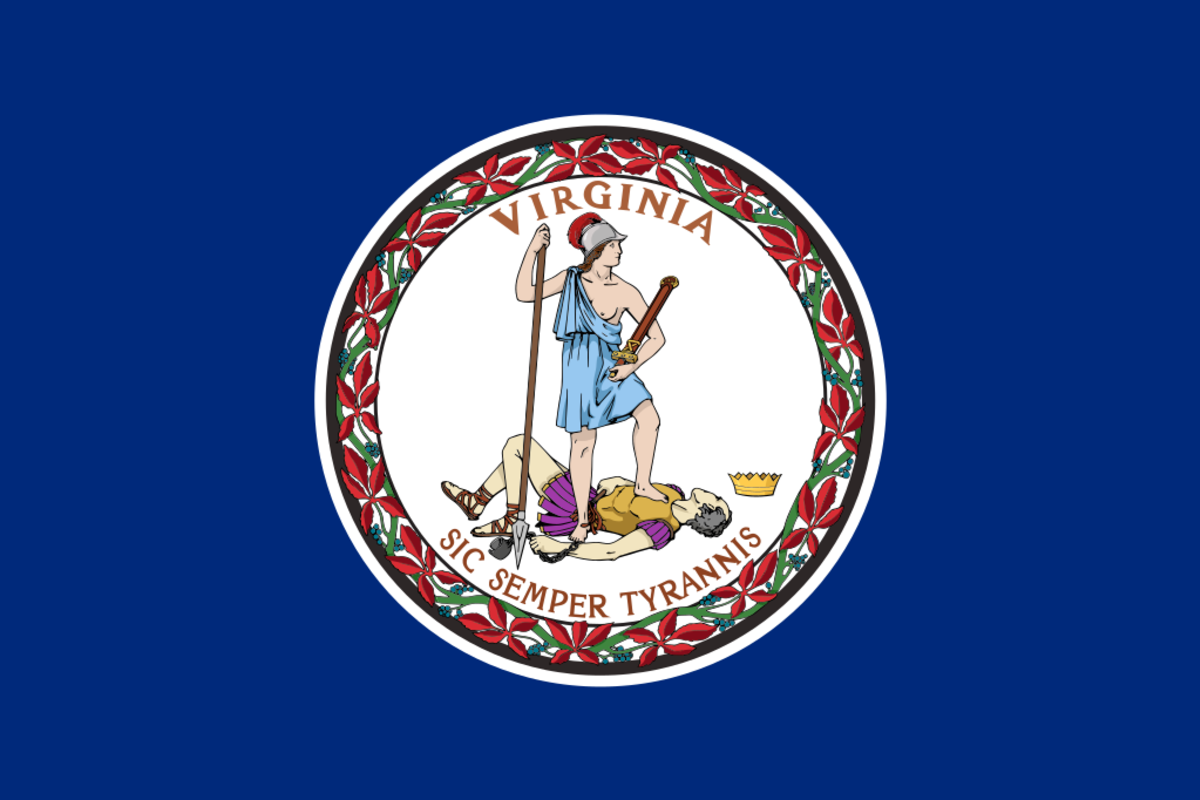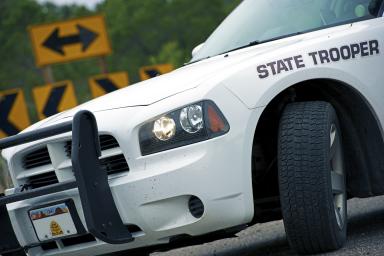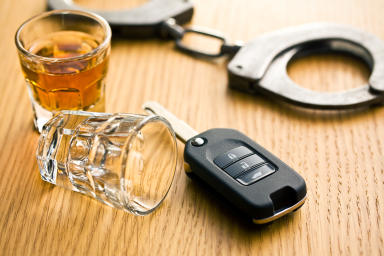Virginia DUI Laws

The Commonwealth of Virginia is home to beautiful landscapes, vibrant cities, and charming communities that provide locals and visitors alike with a taste of the region's historical and cultural bounty. However, despite the picture-perfect setting, a serious problem with far-reaching consequences — driving under the influence — continues to exist. Virginia's legal system for DUI related to alcohol or drugs is both thorough and stringent because of the many lives that are impacted by DUI-related accidents year after year.
In 2021, 15,988 motorists were found guilty of DUI and were subsequently sentenced to jail time. In addition, 4,224 people were injured and 247 people were killed in alcohol-related automobile accidents.
For individuals facing DUI charges as well as those who have been affected by drunk driving, this article will examine the legal framework, punishments, and repercussions that extend beyond the courtroom.
Driving While Intoxicated and Driving Under the Influence Laws in Virginia
In Virginia, DWI and DUI are often used interchangeably. This is because both offenses are charged under the same code, allowing the prosecutor to pursue any of these charges without specifying a particular one. Moreover, DUI-D (drugs) is punishable by law.
Note that one does not have to actually “drive” a vehicle to be apprehended for DUI. In a previous case, a man was convicted of DUI when a police officer found him sleeping behind the wheel of his Toyota, which was illegally parked at a bus stop.
According to the Commonwealth, "operating a vehicle" is defined as being in direct physical control of the vehicle. The Court states that if an intoxicated individual is sitting in the driver's seat of a motor vehicle on a public highway with the key in the ignition switch, they are considered to be in actual physical control of the car. Consequently, they would be deemed guilty of operating the vehicle while under the influence of alcohol.
What many individuals fail to realize is that even in a parking lot or by the side of the road, getting drunk and then sitting behind the wheel to sleep off the alcohol is still against the law in Virginia.
Blood Alcohol Concentration Limits in Relation to DUI
Driving or operating a motor vehicle, boat, or watercraft with a BAC of 0.08% or above is considered a DUI in Virginia. Even with a lower BAC, an individual's ability to operate a vehicle or watercraft may be compromised, and they may still be deemed under the influence. Any drug or medication that causes intoxication can impair driving ability and lead to the same legal consequences. Additionally, when an individual is found to have drugs in their system, such as those identified below, while driving or operating a vehicle, they will be subjected to serious penalties according to Virginia law:
0.02 milligrams of cocaine per liter of blood
0.01 milligrams of phencyclidine (PCP) per liter of blood
0.1 milligrams of methamphetamine per liter of blood
0.1 milligrams of 3,4-methylenedioxymethamphetamine (MDMA, Ecstacy) per liter of blood.
The state also has zero-tolerance laws in place that prohibit individuals under the age of 21 from driving with a BAC of 0.02% or higher. It is commonly referred to as "Baby DUI," but the more accurate term is Driving After Illegally Consuming Alcohol.
If a driver is suspected of DUI following a motor vehicle collision, a law enforcement officer can apprehend the subject even without a warrant for up to three hours after the incident. If the offender has been arrested for DUI three or more times within a five-year period, the court will not release them on bond pending trial.
Virginia Implied Consent Laws
In Virginia, a person who operates a motor vehicle on a public highway is considered to have given implied consent to a chemical test following a DUI arrest. This test is conducted to determine whether alcohol or drugs are present in their system.
The initial recommended test option is a breath test. The use of blood tests is permitted in situations where a breathalyzer is unavailable or if the driver is unable to take a breath test due to physical limitations.
Individuals who have been arrested for DUI have the option to decline a chemical test. Engaging in such behavior can lead to civil or criminal penalties. A first offense typically results in civil penalties being imposed. The court has the option to suspend the defendant's driving privileges for one year. If a person refuses to comply with a DUI arrest, there can be additional consequences, such as the revocation of their license, potential jail time, or fines.
For implied consent to be applicable, certain criteria must be fulfilled: the driver should be driving on a public highway, the arrest must happen within three hours of the alleged offense, and the driver must be suspected of and arrested for DUI. This includes cases involving underage individuals or those with a revoked license while having a BAC higher than 0.02%.
Virginia Boating Under the Influence Laws
Virginia law clearly states that no one may drive or operate a boat, jet ski, surfboard, or any similar equipment while under the influence of alcohol, drugs, or a combination of the two. “Operate” in this context means being in actual physical control of the watercraft, except when the vessel is anchored, tied to the shore, or stuck on the ground.
A BAC of 0.08%, or 0.02% for people under 21, while boating is considered illegal, the same BAC that applies for DUI cases. Law enforcement officers can still arrest individuals even if their BAC falls below the legal limit if they observe other visible signs of intoxication, such as slurred speech, sluggish movement, or disruptive behavior. Virginia’s “Zero Tolerance” laws for underage drinkers also apply in this situation.
A driver may also be apprehended and subjected to serious consequences if they have drugs in their system that impair their ability to safely operate motorboats. The legal limit for cocaine is 0.02mg/L, while for methamphetamine, phencyclidine, and ecstasy, the limit is 0.1mg/L of blood.
BUI convictions in Virginia have severe consequences, like DUIs. Additionally, penalties are harsher for individuals with prior alcohol or drug-related convictions. The first offense will result in a Class 1 misdemeanor and can include a $ 2,500 fine with a maximum of 12 months jail time. The judge may also require the offender to attend boat safety classes and substance abuse treatment programs as needed. The boating license may also be revoked for up to 12 months.
Similar penalties apply for second offenders, although the court may suspend their license for up to three years. A Class 6 felony may be charged for a more serious offense resulting in injury or death. Offenders may face a prison sentence of up to five years in addition to monetary penalties.
In cases where a BUI results in a fatal accident, the offender faces class 5 felony charges for either involuntary or aggravated involuntary manslaughter. Boaters convicted of the former may be sentenced to jail terms of one to 10 years, plus $2,500 in fines. Those convicted of aggravated involuntary manslaughter may be incarcerated for up to 20 years. In both cases of BUI manslaughter, the boater’s privileges are suspended for up to five years, and they may also be ordered to participate in a substance abuse treatment program.
Virginia Dram Shop Laws
Virginia does not have an existing dram shop law, meaning, injury victims cannot sue establishments that continue to serve alcoholic drinks to obviously intoxicated customers. In two previous cases, namely Robinson vs. Matt Mary Moran and Williamson vs. Old Brogue, the Virginia Supreme Court established that alcohol-related accidents are primarily caused by the consumption of alcohol, not the act of providing it.
Additionally, victims of drunk driving cannot file a lawsuit against social hosts in Virginia who continue to serve alcohol to visibly intoxicated guests. However, hosts who serve or provide alcoholic drinks to an individual below 21 years old may face criminal penalties, including a misdemeanor charge and hefty fines.
What Are the Penalties for a DUI in Virginia?
The consequences for DUI in Virginia depend on the number of prior DUI convictions within the last five to 10 years. Harsher penalties are likewise given to offenders with extremely high BAC and those caught drunk driving with a minor in the car.
First DUI Conviction Penalties
If someone is found guilty of DUI for the first time within 10 years (previous DUIs do not count), the offender faces a misdemeanor charge and may be sentenced to a maximum of one year in jail and be ordered to pay a fine ranging from $250 to $2,500. If that person’s BAC is between 0.15% and 0.20%, they will receive an extra penalty of at least five days in jail. If the BAC is higher than 0.20%, the punishment is increased, and they may have to spend at least 10 more days in jail.
Second DUI Conviction Penalties
If a driver is convicted of a second DUI within 10 years of the first, they will face a misdemeanor charge in addition to jail time of 10 days to 12 months and monetary penalties ranging from $500 to $2500. Additionally, their driver’s license can be revoked for up to three years, and they may be required to install an ignition interlocking device in their vehicle for a minimum of six months.
The IID requirement will still be applicable even if the offender seeks to have a restricted driver’s license, which will allow them to drive to and from certain places. This means that they will still be required to install an IID on their cars if they wish to continue driving.
Third DUI Conviction Penalties
If a motorist is convicted of a DUI for the third time in 10 years, their driving privileges will be revoked indefinitely. Aside from being charged with a Class 6 felony, the offender will be required to pay a fine of $1,000 to $2,500 and will face jail time of 90 days to five years. However, if the offender has been convicted of DUI three times within five years, the minimum jail time increases to six months. They will also be required to install an IID on their vehicle for at least six months.
Fourth and Subsequent DUI Conviction Penalties
A subsequent DUI conviction after a third one results in a class 6 felony, which carries a minimum sentence of one year in prison and a minimum fine of $1,000. The person will be subject to a prison sentence ranging from one to five years, as well as a fine amounting to $1,000. As outlined in § 18.2-270, having been convicted of three DUIs in 10 years will also result in the seizure and forfeiture of the vehicle.
Enhanced Penalties for DUI
If there were injuries or deaths as a result of drunk driving, a DUI can potentially be prosecuted as a class 6 or class 4 felony. Individuals who are found guilty of a class 6 felony can be sentenced to imprisonment for a period ranging from one to five years and may also be subject to fines of up to $2,500. A class 4 felony is punishable by a prison sentence ranging from two to 10 years as well as a fine of up to $100,000.
Causing the death of another person due to drunk driving is legally classified as "vehicular manslaughter," which is a class 5 felony. A conviction typically results in a prison sentence of up to 10 years and a maximum fine of $2,500. However, cases that are classified as "aggravated vehicular manslaughter" are particularly severe and result in enhanced penalties, which may include a maximum prison sentence of up to 20 years.
The penalties mentioned above can become more severe if the offense involves minor passengers or a BAC of at least 0.15%. The presence of these factors can lead to increased fines and longer jail sentences, depending on the specific circumstances.
How Much Can Someone Sue For a Drunk Driving Injury in Virginia?
The goal of a successful drunk driving injury claim is to get financial compensation to help a victim feel “whole” again, especially after a serious accident that caused traumatic injuries or death. However, it is quite difficult to put a specific monetary value on how much one can get following a successful lawsuit, as there are intangible aspects like pain and suffering that cannot be quantified.
While no two cases are exactly alike, victims usually file for economic and non-economic damages for current and future lost wages, medical expenses, emotional distress, pain and suffering, and loss of companionship or consortium.
Additionally, punitive damages are available to DUI victims in Virginia. The purpose of these types of damages is not to award compensation to the injured but to punish the perpetrator and set an example to discourage other drivers from committing similar actions. For punitive damages to be available to a DUI victim, certain criteria must be met:
The driver responsible for the accident had a BAC of 0.15% or higher, as confirmed by laboratory testing;
The driver was aware, or should have been aware, that their alcohol consumption impaired their ability to drive;
The driver's intoxication directly caused the accident, which resulted in the injury or death of the victim.
The Statute of Limitations in Virginia
In Virginia, there is a two-year statute of limitations for individuals who have been injured in a vehicle accident to seek compensation. In the same way, if someone dies due to someone else's negligence, their family has two years from the date of death to submit a claim. Failing to file within this time frame can make it extremely challenging or even impossible to obtain the compensation the victim rightfully deserves.
Virginia's statute of limitations can be extended in certain circumstances. This implies that the time limit will not commence from the date of the accident but will be temporarily suspended. These circumstances include the following:
The plaintiff is a minor;
The plaintiff is mentally unfit to sue;
The plaintiff is a disabled person.
The statute of limitations only affects court filing deadlines. When it comes to making a claim with an insurance provider, the timeframe may be altogether different.
Resources for Folks Injured by an Impaired Driver in Virginia
Mothers Against Drunk Driving - Virginia
This nonprofit organization with a nationwide presence was founded in the 1980s by a group of grieving mothers who lost their sons and daughters to accidents caused by drunk driving. One of the organization’s programs, the Victim Impact Panel, aims to help those who have been convicted of driving under the influence of alcohol or drugs understand and fully grasp the enduring and far-reaching implications of impaired driving caused by substance abuse. The classes aim to foster empathy and understanding of the tragedy, leaving a lasting impact that prompts individuals to reevaluate their thoughts and behaviors, ultimately preventing future offenses.
Virginia Victims Fund
The Virginia Victims Fund, officially known as the Criminal Injuries Compensation Fund, is a state program designed to assist victims of violent crimes by providing financial support for their out-of-pocket expenses. Examples include funeral costs, prescription costs, mental health counseling, loss of support, and hospital expenditures. According to state legislation, the VVF is a payor of final recourse, which implies that applicants get reimbursement for qualified costs for which no other source has paid or will pay compensation. Insurance of any kind, whether for health, life, an automobile, or protection against civil litigation, is included.
Virginia Victim Assistance Network
The Virginia Victim Assistance Network, or The Network, has been helping with the needs of crime victims and training professionals in victim assistance for over four decades. It focuses on helping victims and their loved ones by providing medical care, emotional support, and legal representation; advocating for laws and regulations that safeguard victims' rights; helping members grow by providing opportunities for professional development and encouraging collaboration; and enhancing criminal justice accountability.
Expertise.com StaffAuthor
Step into the world of Expertise.com, your go-to hub for credible insights. We don't take accuracy lightly around here. Our squad of expert reviewers, each a maestro in their field, has given the green light to every single article you'll find. From rigorous fact-checking to meticulous evaluations of service providers, we've got it all covered. So feel free to dive in and explore. The information you'll uncover has been stamped with the seal of approval by our top-notch experts.




